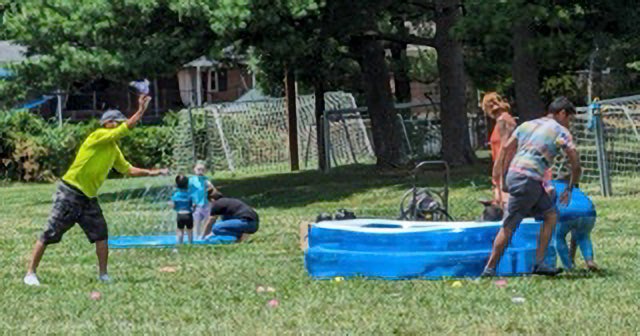Turning local government into a community friend – The Aspen Institute


In Lexington, KY, a history of discriminatory policies and outdated urban plans left many neighborhoods without green spaces. To begin to fix that, people had to find ways to work together with the local government that, at times, had excluded them. And they had to lean into a complex process for establishing local parks that involves years of hearings and steady work with officials.
A coalition of nonprofits and government agencies got together to provide support. They received a grant from the Trust for Public Land and created the Lexington Park Equity Accelerator, an 18-month pilot program designed to get people thinking about and involved in increasing access to green spaces. Task #1 was to get neighbors motivated and working together, for the long haul.
The Park Accelerator team believed that engagement and fun were the keys to success, along with a little cash. Besides providing focus groups and workshops that brought residents and city employees together to learn from each other, the team gave neighborhoods $1000 to create quick, easy projects people wanted, from planting a butterfly garden to organizing a one-day water balloon fight.
“These are small grants,” admits Megan Gulla, “but they help residents work together and get engaged. It’s just the beginning to get a broad swath of residents truly engaged in the planning and decision-making processes for these spaces.” She is with CivicLex, one of the groups in the Park Accelerator coalition. CivicLex is all about making local government work for people – and that often takes creativity.
“Anyone who’s ever been to a city meeting, you know it’s pretty boring. We are trying to make it a lot less so by bringing some fun and levity,” says Gulla. When CivicLex runs a workshop to explain the inner workings of government, it creates games and offers trivia quizzes with prizes.
When city officials needed public input on expanding the city’s urban services boundary, CivicLex organized a family-friendly event at a YMCA with bouncy houses, food trucks, and music. “We had a DJ who also happens to be a city planner,” says Gulla.
They set up stations where folks could talk with city planners and share their feedback. “Our cities aren’t the way they are for no reason,” insists Gulla. “They are a result of choices. We are trying to get people to think about that fact and realize, ‘Hey, I can be part of this conversation.’”
If your neighborhood needs to get people interested, even excited, about working through local government to create change, you might want to study the CivicLex handbook. It shares what has worked in Lexington, KY and might just inspire you to make government more of a neighborhood friend, than a bureaucratic obstacle.
This story was originally published on Weave’s newsletter. You can subscribe here for more stories.

“On February 8 the world will dance.” With that line, the Super Bowl’s teaser made one thing clear: the 2026...

Current Reports Arbor Realty Trust’s Small Multifamily Investment Trends Report Q1 2026, developed in partnership with...

Debt doesn’t always happen all at once. Balances can creep up through everyday expenses, rising interest, or a financial setback that throws a budget...